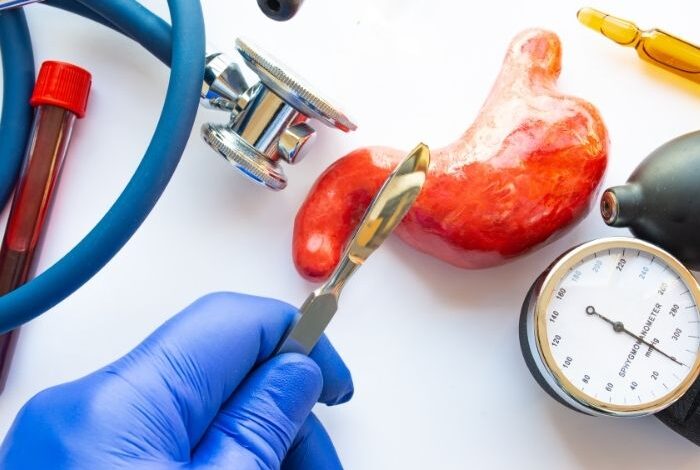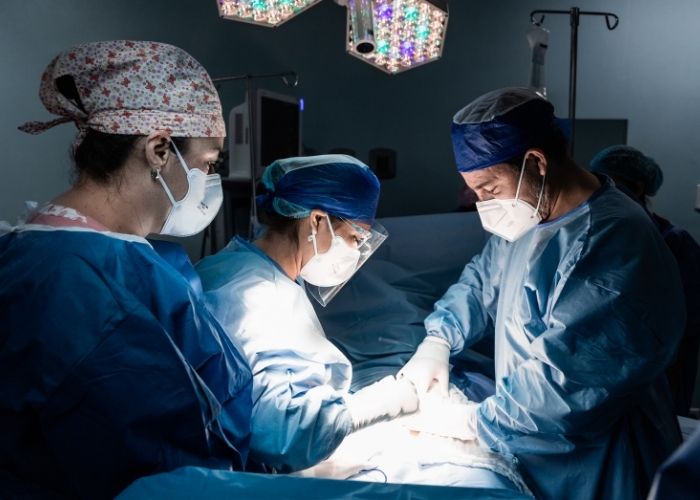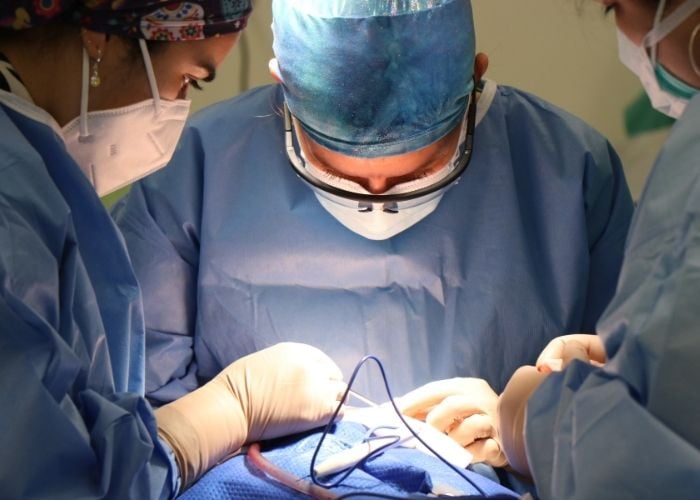Weight Loss Surgery
Plan weight loss surgery in Istanbul with board certified bariatric surgeons at JCI accredited hospitals. Compare prices for gastric sleeve, bypass and balloon with full aftercare.

Many people try diets, exercise plans, and medications. These can help. For some, the weight comes back or health problems get worse. Weight loss surgery can lead to meaningful and sustained weight loss. It can also lower the risk of type 2 diabetes, sleep apnea, heart disease, fatty liver disease, and high blood pressure. Your surgical team will decide if it is right for you after a full assessment.
How the weight loss surgery works in simple terms
Surgery reduces the size of your stomach. In some procedures, it also reroutes part of your intestines. You feel full with smaller portions. Your body’s hunger hormones change. Your blood sugar control often improves. You still need a healthy routine, vitamins, and regular checkups.

Common types of weight loss surgery
- Sleeve gastrectomy. The surgeon removes a large part of the stomach and creates a narrow sleeve. It limits how much you can eat and affects hunger hormones. It is the most common option in many centers today.
- Gastric bypass or Roux en Y. The surgeon creates a small stomach pouch and connects it to the small intestine. It reduces portion size and calorie absorption. It also helps blood sugar control.
- Duodenal switch and SADI S. These are more complex and combine a sleeve with a larger bypass. They can lead to more weight loss and more vitamin needs. They are used for selected patients.
- Adjustable gastric band. This is less common today. A band is placed around the top of the stomach to limit intake. It requires adjustments and has declined in use.
Benefits and limits
Most patients lose a meaningful amount of weight in the first year. Many see improvement in diabetes, sleep apnea, cholesterol, and blood pressure. Some stop certain medications. Results differ from person to person. Surgery does not replace daily habits. It is not a quick fix.
Risks and possible complications
All surgery carries risk. Possible problems include bleeding, infection, blood clots, leaks, reflux, strictures, ulcers, and vitamin or mineral deficiencies. Long term, some people need additional procedures. Careful follow up and daily supplements reduce risks. Your surgeon will explain the plan for prevention and early treatment.
Who Might Need Weight Loss Surgery
Doctors use international guidelines to decide who may benefit. They look at your body mass index, your health conditions, and your past efforts to lose weight. They also consider your readiness for lifelong follow up.
Medical criteria, in plain language
- Often recommended if your BMI is 35 or higher, even if you do not have other illnesses.
- May be considered if your BMI is 30 to 34.9 and you have metabolic disease such as type 2 diabetes that is hard to control.
- These modern criteria update older rules. Your team will always assess your individual case.

Who should wait or avoid surgery
Some people should delay or avoid surgery because of specific medical issues, untreated eating disorders, substance use, or inability to commit to follow up. The surgical team will help you make a safe plan. A mental health and nutrition review is a standard part of care.
Preparing for Surgery
Assessments you can expect
- Full medical exam and lab tests.
- Nutrition counseling and a plan for vitamins.
- Review of sleep apnea, diabetes, heart health, and medications.
- Education classes so you know what will happen before and after surgery.
These steps help you get the best result and reduce risks.
On the day and during your stay
Most procedures are done with keyhole surgery. Many people walk the same day, sip liquids, and use breathing exercises. Hospital stay is usually short, based on your progress and the type of surgery.
Recovery timeline, the simple version
- First two weeks. Liquids and protein drinks. Short walks several times a day.
- Weeks three to four. Pureed and soft foods, slow and mindful bites, keep sipping water.
- After one month. Gradual return to normal textures as advised by your team. Keep portions small. Keep protein high.
- Long term. Daily vitamins and minerals, regular lab checks, and support visits.
Weight Loss Surgery in Istanbul
Istanbul is a major center for health travel. The city has modern hospitals, experienced surgeons, and care teams that work with international patients every day. Many hospitals offer full packages that include airport welcome, translation, and follow up planning. The cost is often more affordable than in many Western countries, while still focusing on quality and safety. Always compare carefully and choose experience and accreditation first.
Quality, safety, and international accreditation
Istanbul has multiple hospitals accredited by Joint Commission International, which checks systems for patient safety and quality. You can search the JCI website for current accredited organizations and confirm status by name. This is a simple way to verify standards before you book.
How care is organized for international patients
- Dedicated international desks. Teams help with travel planning, interpreters, and appointment schedules.
- Pre arrival review. You share medical records and complete a health questionnaire. Some centers arrange a video call with your surgeon.
- In person assessment. You meet the team, complete lab tests, and have imaging or endoscopy if needed.
- Surgery and early recovery. Hospital stay is tailored to your needs and the procedure type.
- Discharge plan. You receive written diet stages, vitamin schedule, warning signs, and contact methods. Follow up calls or tele visits are common.
Why Istanbul works well for patients
- Experienced surgeons who perform large case volumes and follow international guidelines.
- Modern facilities with advanced operating rooms and intensive care units. Many hold international accreditation.
- Integrated teams. Surgeons, anesthesiologists, dietitians, psychologists, and nurses work together.
- Language support. English is widely used in medical settings. Interpreter services are common.
- Comfort and culture. Istanbul blends history, cuisine, and hospitality. Many patients bring a companion and plan a gentle city break after the medical stay, with doctor approval.
A typical patient journey in Istanbul
- Inquiry. You contact a hospital or a trusted platform and share your goals and medical history.
- Medical review. The team checks your labs and imaging. They confirm the likely procedure and timeline.
- Travel booking. You set dates, arrange airport pickup, hotel near the hospital, and interpreter support.
- Day 1. In person evaluation, tests, and consent. You review risks, benefits, and aftercare.
- Surgery. Usually laparoscopic. Early walking and breathing exercises start the same day.
- Discharge. You receive written instructions, prescriptions, and emergency contacts.
- Follow up. Tele visits and shared lab results with your local doctor for long term care.
Aftercare when you return home
Good results depend on long term follow up. Plan who will check your labs, vitamins, and weight trend at home. Many Istanbul centers share reports and coordinate with your local doctor by email or portal. Agree on a schedule before you fly.

Ethical, safe choices
- Choose hospitals and surgeons with clear credentials and verifiable experience.
- Confirm accreditation on official sites. Avoid offers that push speed over safety.
- Ask for full details, what is included, and what is not. Ask about emergency care plans.
- Bring your records and keep copies of your discharge letter and medication list.
Costs, Packages, and Practical Tips
Many hospitals in Istanbul offer packages that cover pre op tests, surgery, hospital stay, medications used in the hospital, and a set number of follow up visits. Some include airport transfers and hotel nights for you and a companion. Always ask for a written list of inclusions and exclusions. Compare more than one offer. Focus on surgeon experience and safety first.
Travel planning tips
- Book flexible flights in case your doctor advises a change.
- Plan for at least one companion if possible. It helps with comfort and logistics.
- Stay near the hospital during the first days after discharge.
- Follow the flight safety advice from your team, including walking, hydration, and stockings if advised.
Life After Surgery, What Day to Day Looks Like
Eating and drinking
- Small, slow meals. Protein first. Sip water through the day.
- Avoid sugary drinks and alcohol. Avoid smoking and vaping.
- Listen to fullness signals and stop before discomfort.
- Follow the diet stages your team gives you. Keep a food and mood log at first.
Vitamins and lab checks
Daily supplements are not optional. Your team will tailor a plan with multivitamins, iron, B12, calcium, and vitamin D, and more if needed. Regular blood tests help adjust doses over time. Keep every follow up appointment.
Activity and support
Walking starts right after surgery. Over time, add light strength work and low impact cardio. Join a support group or work with a counselor if emotional eating has been part of your story. A calm, steady routine supports long term success.}
Frequently Asked Questions
How much weight will I lose
Results vary. Your team will discuss the expected range for your body and procedure. Long term habits and follow up make the biggest difference. :contentReference[oaicite:31]{index=31}
How long will I stay in Istanbul
Most patients plan one to two weeks in the city for tests, surgery, and early recovery. Your surgeon will confirm the safest plan for you.
Is it safe to fly after surgery
Your surgeon will advise the right timing. Many people can fly after a short recovery if there are no complications and they follow mobility and hydration advice.
Will I need plastic surgery later
Some people choose body contouring after major weight loss. It depends on age, genetics, skin, and weight loss pace. This is a separate decision and should be discussed after you reach a stable weight.
What documents should I bring
Bring your medical history, current medications, allergy list, and past surgery notes. Keep copies of all reports from Istanbul to share with your local doctor.
Why Choose Istanbul.com to Plan Your Care
We work with selected providers in Istanbul so you can compare clear offers in one place. You get guidance on the steps, what to ask, and how to prepare. You can reach out, choose suitable dates, and plan your journey with confidence. We aim for safe, smooth, and human centered care.

Important Notes Before You Decide
- Talk to your doctor first. If you get sick often in winter or have chronic conditions, simple blood tests and a full checkup may be needed before any surgery. Share every medication and supplement you use.
- Use official checks. Confirm hospital accreditation. Confirm surgeon credentials and experience with your specific procedure.
- Know the guidelines. Modern criteria focus on BMI and metabolic health. Your team will individualize the plan.
- Plan follow up. Set dates for lab checks and video calls before you fly home.
Start Your Weight Loss Surgery Journey in Istanbul
If you are ready to explore options, you can send your medical history, recent lab results, and your goals. We will connect you with experienced teams that follow international standards. You can ask questions, compare options, and choose the plan that fits your life. Istanbul welcomes you with advanced medicine, warm care, and a city full of beauty.
This page is for general information. It does not replace medical advice. Always consult a qualified healthcare professional for personal recommendations.



